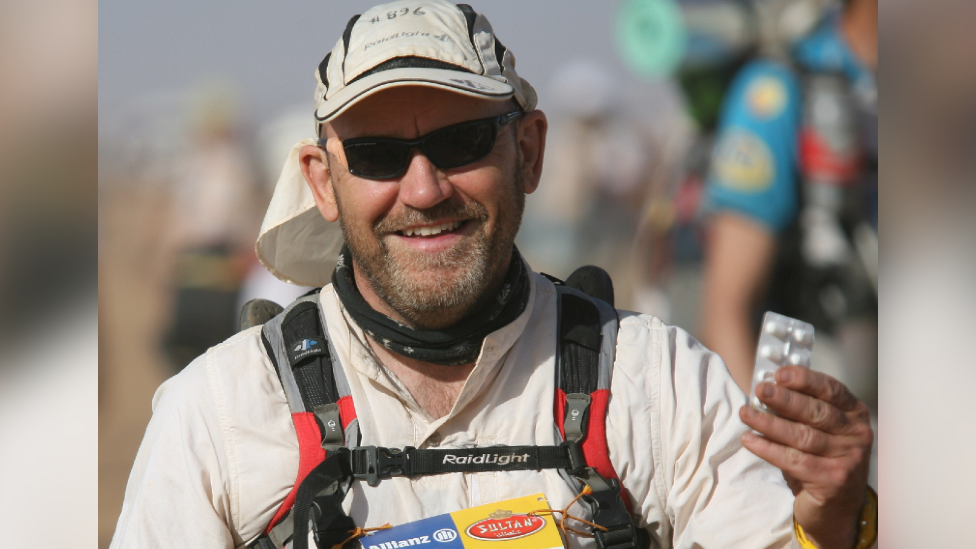Runner to repeat challenge that 'saved his life'

Dale Thomas is due to take on the ultramarathon across the Namib Desert in November
- Published
An intrepid grandfather is preparing to undertake a mammoth African ultramarathon challenge, six years after he had to quit it after suffering from what he later found was cancer.
Dale Thomas, 66, from Burghfield, is set to take on the Desert Ultra, a 155-mile (250km), five-day trek across the Namib Desert in Namibia in November.
Suffering with a bad back and "some issue with my waterworks", Mr Thomas pulled out part-way through the race in 2019 and later found out he had been living with prostate cancer.
Now in remission, he is raising funds for the Ollie Young Foundation, external, a Wokingham charity which funds paediatric brain tumour research and support.
November's challenge will be Mr Thomas' seventh ultramarathon and he has previously completed the Marathon des Sables, the race through the Sahara Desert.
"It got to 200km (124 miles) six years ago and I had a bad back. Let's just say I had some issue with my waterworks and I decided it was probably best to stop and the doctor at the event said: 'get your bloods done when you get back,'" Mr Thomas told BBC Radio Berkshire.
"I'm a typical bloke. I got back, what did I do? I ignored it and my wife, bless her, nagged me and nagged me to get it done. The short story is that I got it done and found I had inoperable prostate cancer."
Told that he could no longer run by his oncologist, Mr Thomas said he had "found a way to run again" that would not damage his spine.
"The oncologist, in the end, said: 'go for it'. My family has given me some amazing support to do that so I'm going back to the race that saved my life," he added.
Named after a Wokingham boy who died a day before his sixth birthday, the Ollie Young Foundation is run entirely by volunteers.
"Childhood brain cancer is completely indiscriminate. It does not care if you're rich, poor, if you're good, bad. There are so many families in the UK even now who are being stricken by this awful disease," Mr Thomas said.
Get in touch
Do you have a story BBC Berkshire should cover?